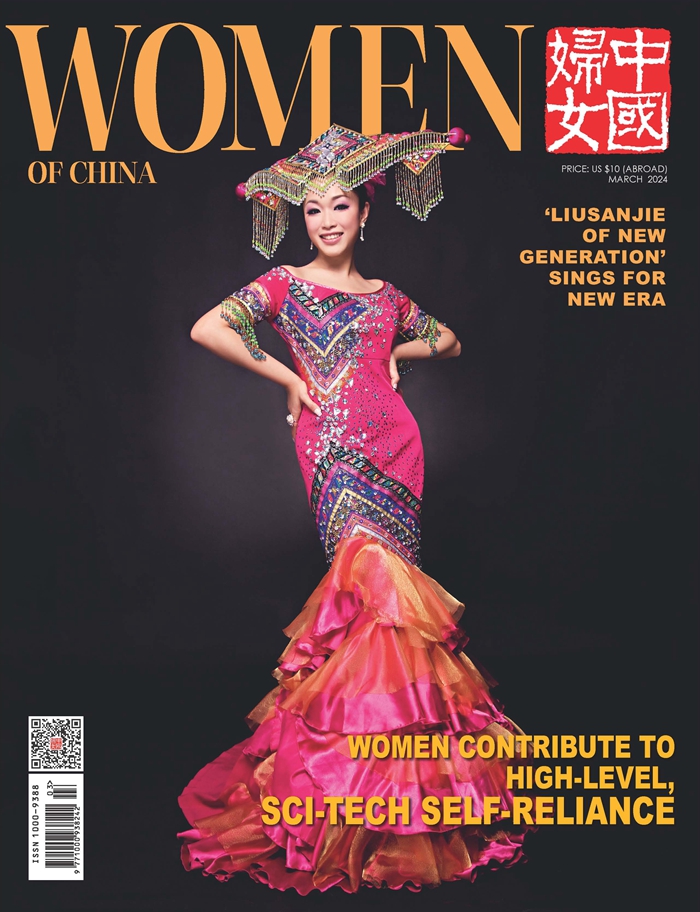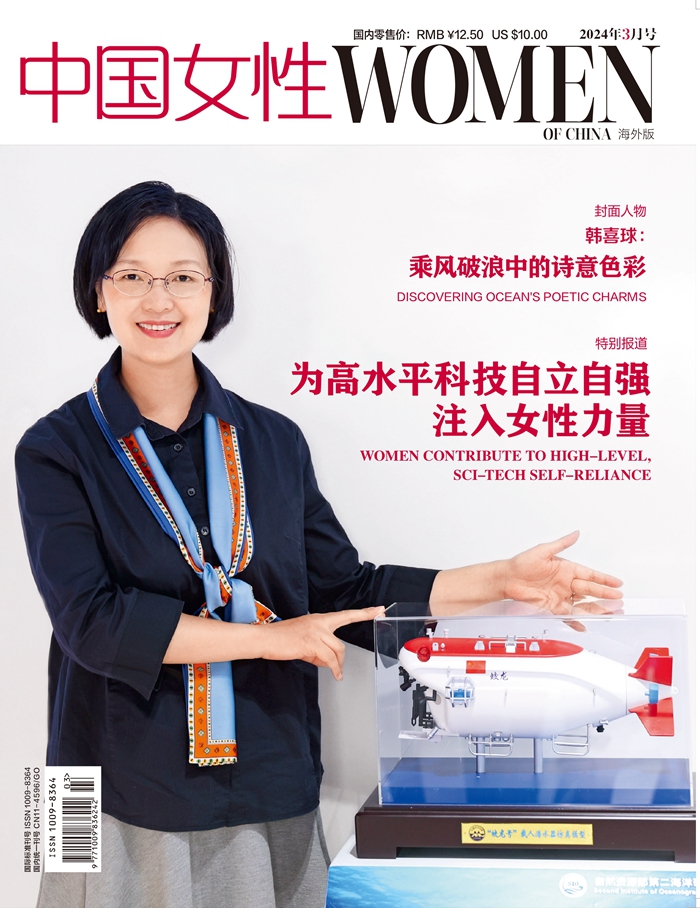Poem Rings a Bell
German composer Robert Zollitsch delves into old Chinese words and sounds.
In his poem, Ju Song, or Ode to an Orange Tree, patriotic Chinese poet Qu Yuan from the Warring States Period (475-221 BC) praised the beauty of an orange tree in southern China. He compared the tree to a virtuous man who is determined and dedicated. The poem is often cited for its indication of the poet's loyal, unyielding and unselfish image.
When German composer Robert Zollitsch was commissioned to write a song for a gala produced by China Central Television, marking Spring Festival, he chose to compose for the poem by using bianzhong, one of the oldest Chinese musical instruments that originated about 2,500 years ago, consisting of a set of bells of varying sizes that produce different sounds when struck. The song, performed by Zollitsch's wife, Chinese singer Gong Linna, will debut on Feb 1, Lunar New Year, the biggest traditional Chinese festival.
"We recorded the song in Beijing last November by working with a bianzhong band from the Hubei Provincial Museum and my own band," says Gong, adding that her husband composed the song in Germany.
"Like the poem, the song is an ode to Chinese traditional culture and values. With the performance of bianzhong, the song sounds like a ritual," she adds.
Besides the set of bells, the composer also used other traditional Chinese musical instruments such as sheng, dizi, guzheng and ruan, as well as big Chinese drums as live instruments in his composition.
"All other sounds are electronic sounds or computer-generated samples in this production. I like the merger of live recordings and production work on computer. For me, it became a very nice way to produce music, as I can write the scores I love as a composer, but also can use modern technology to produce the actual audio files for songs to be published,"Zollitsch says.
"My way of working, understanding classical lyrics and finding ideas for the right sound for these words became more and more intuitive. During the work process I let things happen naturally. Not that I would not use my brain, my technique and knowledge, but I do not seek control, nor do I reflect, it just happens," he adds.
This is not the first time that Zollitsch has composed songs for Qu's poems by using bianzhong and performed by Gong. The composer's first encounter with the instrument was in 2006 when he heard 65 Chinese bronze bells ringing during the Amsterdam China Festival in the Netherlands.
The same year, he traveled to Hubei Province in Central China to visit the provincial museum, which is known for its collection of the 2,500-year-old bronze chime bells of Marquis Yi of the Zeng State. In 1978, those bells were found from the tomb of Yi in Suizhou, Hubei. Each of the bells produces two sounds. The whole set has a range of five octaves, with a complete 12-tone scale. Scholars have described them as the greatest achievement in the development of musical instruments in China before the Qin Dynasty (221-206 BC).
Since then, the composer has been researching on and experimenting with the instrument. In 2018, Zollitsch launched his bianzhong project, titled Bells Renaissance, with a series of compositional works based on the sounds of the bells.
In 2007, he adapted a set of poems, Jiu Ge, or Nine Songs, by Qu. One of Qu's poems, titled Shan Gui, or Ghost of Mountains, was composed for the bianzhong by Zollitsch. At that time, he could not find bianzhong musicians to perform the piece and had to turn it into chamber music instead. In 2013, he composed another bianzhong piece titled Resounding Chime as part of a collaboration with Yan Huichang, the artistic director of the Hong Kong Chinese Orchestra, which premiered in Hong Kong in 2014.
"The bells are an incredible instrument, certainly the world's most spectacular music archaeological finding ever. Of course, it will never become a popular instrument, since it is far too big and its sound is very special and not very flexible. But with its archaic tone, its incredible power and its overwhelming historical meaning, it certainly deserves a special place on the big stages of the world," says Zollitsch.
"Yet it is quite astonishing that despite its special place in human history, the bells as an instrument haven't made it to international fame. Of course specialists, Sinologists, music archaeologists, they know about the bells — but even most professional musicians outside China have not heard of this instrument yet. So, there's still quite a path to go to really see this instrument shine, or rather resonate again, after more than 2,000 years of silence," he adds.
Born and raised in Munich, Germany, Zollitsch, who is also known as Lao Luo among Chinese audiences, came to China on a scholarship to study the guqin, the seven-stringed Chinese zither, in Shanghai in 1993. He met Gong at a concert in Beijing in 2002. She has throughout her career performed many works by her composer husband.
Born in Guiyang, in Southwest China's Guizhou Province, Gong started to learn Chinese folk songs at a young age. She joined the China Conservatory of Music in Beijing when she was 16 and went on to sing for the China National Traditional Orchestra after graduation. In 2000, Gong won the best woman singer award at the Chinese National Singing Competition and became a popular figure on TV shows.
The couple is known to be passionate about reviving traditional Chinese music by infusing the genre with a contemporary twist. They've adapted Chinese poems of the Song Dynasty (960-1127) and the Tang Dynasty (618-907) into Chinese songs. In 2017, they selected 24 traditional poems and turned each of them into a song with a title reflecting the 24 solar terms from the traditional Chinese calendar.
Zollitsch lives in Germany with their two sons due to the pandemic. He says his spoken Chinese has degraded, as the chance to talk to Chinese in daily life is rare now. But his interest in adapting classical Chinese lyrics into music seems to have grown more. He recently wrote songs by using excerpts from Shijing, or the Book of Songs, an ancient Chinese collection of poems.
"Often I select a poem before sleeping, read it several times and wait for a feeling of sound rising up in me, a taste of the melody, how it has to flow, how its rhythm has to be. Then the next morning I sit down and start composing, and often by the evening the song is finished. Of course, I continue with some corrections and some fine-tuning for a couple of days more, and then the production of the song is still a separate and pretty big piece of work. But the song itself, its basic idea, structure, melody, is done within a day," he says.
(Source: China Daily)
Please understand that womenofchina.cn,a non-profit, information-communication website, cannot reach every writer before using articles and images. For copyright issues, please contact us by emailing: website@womenofchina.cn. The articles published and opinions expressed on this website represent the opinions of writers and are not necessarily shared by womenofchina.cn.







 WeChat
WeChat Weibo
Weibo 京公网安备 11010102004314号
京公网安备 11010102004314号